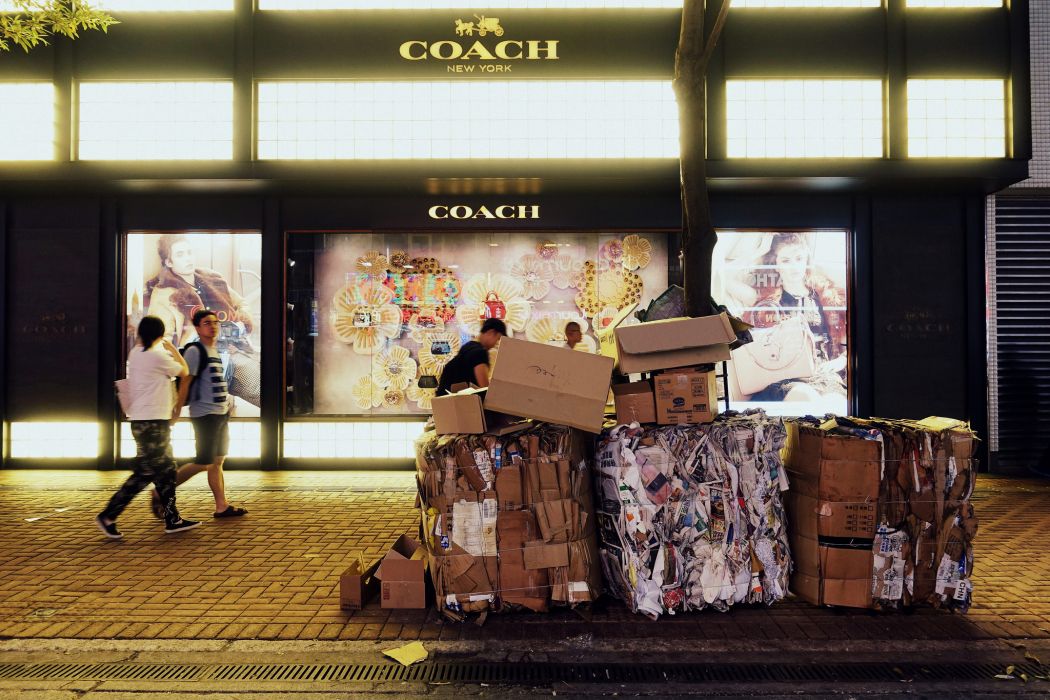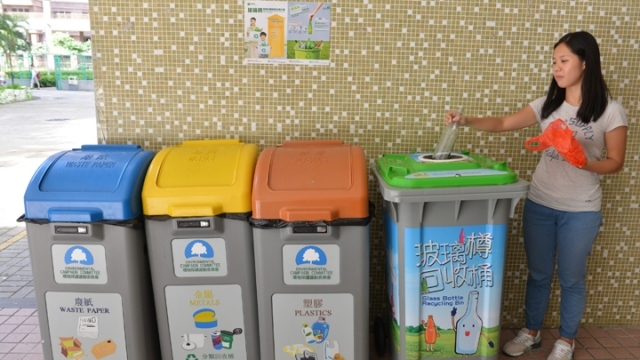Earlier this week, waste paper exporters went on a strike over the difficulty Mainland importers experienced in securing import permits. This followed China’s announcement to the World Trade Organisation in July that it would ban imports of 24 types of low-grade waste recyclables by the end of the year.
The effect of the strike was immediately obvious. Cardboard boxes piled up on the streets, as the price paid for waste paper fell by up to half, and some collectors outright refused to buy. Elderly waste pickers had to make multiple runs to make enough for the day, while street cleaners had to put in extra time cleaning up.

While collection has resumed, this brief stint should have raised people’s awareness of the weaknesses in Hong Kong’s recycling industry.
Firstly, Hong Kong doesn’t recycle. Most, if not all, of the city’s collected recyclables are exported, and almost 98% of that is shipped to China to be dealt with.
Secondly, comparatively little processing is done locally prior to export. Exporters are mostly shipping low-value materials.
Thirdly, for a modern city, our recycling system is surprisingly primitive. We are still relying on informal waste pickers to salvage recyclables – something more common in developing countries. It also highlights how broken the city’s social security net is, but that is another matter altogether.
With the waste paper crisis averted, government officials may be breathing a sigh of relief, but it is by no means resolved. China’s import ban will still come into force by the end of the year, and Hong Kong may once again be besieged by waste.
Calls to reduce consumption are well-intentioned, but they don’t tackle the core issues. The Government needs to adopt integrated solid waste management.

Waste is a resource that should be recovered and reused, but many still see it as just a public hygiene problem that must be treated and disposed of. This outdated mindset is reflected in the responsibilities allocated to government departments, incoherent policies, and the lack of investment in waste management technologies and infrastructure.
Producers should be held responsible for the entire lifecycle of their products. The cost of the resulting waste treatment is often offloaded onto cities – and their citizens. This externality should instead be levied from manufacturers and importers through extended producer responsibility.
Money recovered needs to be ring-fenced to support the recycling industry by subsidising recycling operations and education on resource recovery and sustainable consumption.
Finally, the Government must upgrade and transform the recycling industry. Shipping out our waste for others to deal with is neither sustainable nor a long-term solution.

In the short to medium-term, the industry has to develop a greater capacity for processing waste recyclables into higher-grade commodities, by for example pulping mixed paper waste and pelletizing plastic waste. This is important because the import ban covers low-grade waste products – including unsorted paper and paperboard and #1 plastic (PET) waste.
In the longer term, the Government must reduce its reliance on exporting waste by developing Hong Kong’s ability to reuse resources locally. Investment should be funnelled into expanding manufacturing capacity for recycled products.
The Government must also support the local green industry through green procurement, creating a circular economy.
This recent waste import ban – along with the National Sword campaign and the 2013 Operation Green Fence – is just a small part of China’s ongoing efforts to clamp down on foreign waste.
Unlike us, other municipalities have been adjusting existing policies and practices and investing heavily in better facilities to meet the changing market. Is it not high time for Hong Kong also to challenge the existing system?
Wendell Chan is a Project Officer for Friends of the Earth (HK)
